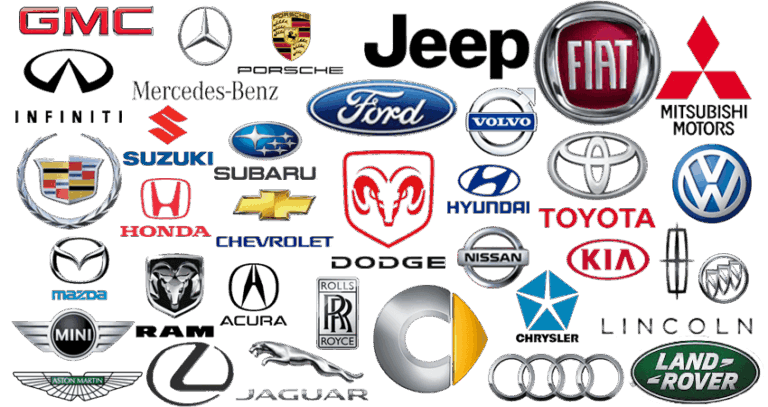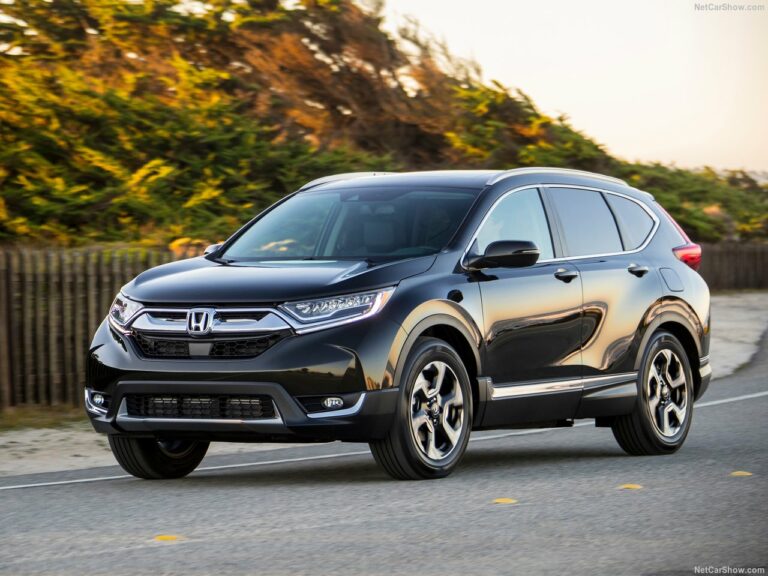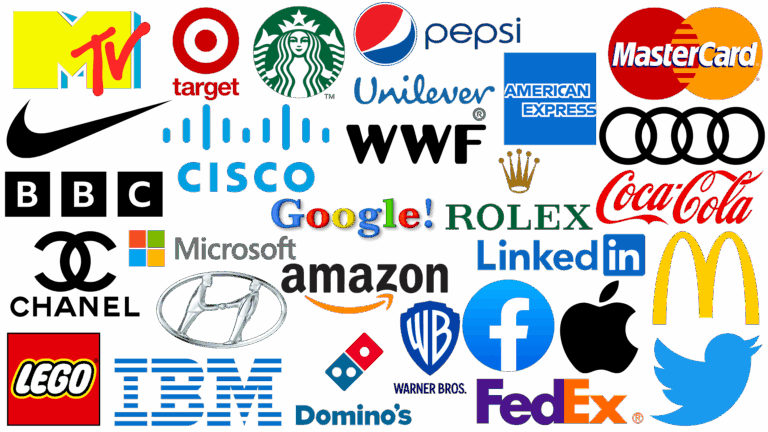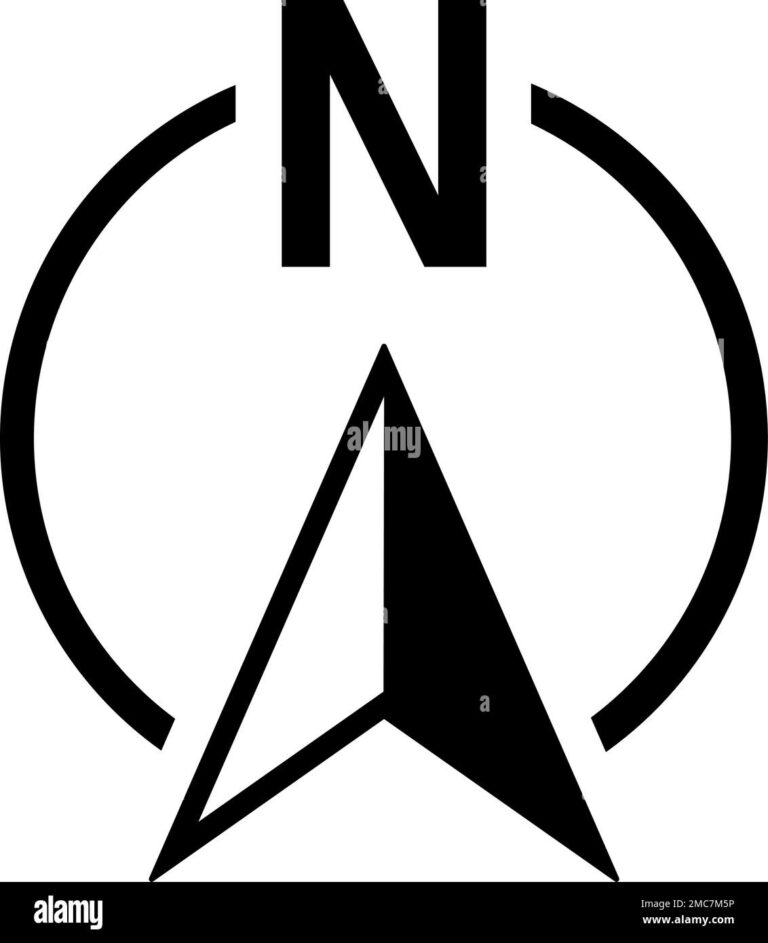VW Car Brands: A Deep Dive into the Automotive Empire
VW Car Brands: A Deep Dive into the Automotive Empire cars.truckstrend.com
The automotive world is a vast and competitive landscape, but few entities command as much influence and diversity as the Volkswagen Group. Far more than just the iconic "people’s car" brand, Volkswagen AG (VW AG) is a sprawling conglomerate that has meticulously assembled a portfolio of some of the most recognizable and revered names in the industry. From humble city cars to exotic hypercars, practical commercial vehicles to high-performance motorcycles, the VW Group represents a masterclass in market segmentation, technological synergy, and strategic brand management. Understanding the "VW Car Brands" isn’t merely about listing names; it’s about appreciating a meticulously engineered ecosystem designed to cater to every conceivable automotive need and desire.
The Genesis of a Giant – Understanding the Volkswagen Group
VW Car Brands: A Deep Dive into the Automotive Empire
The story of Volkswagen begins in 1937 with the ambitious goal of producing an affordable car for the German populace – the "people’s car." After World War II, under the guidance of British Major Ivan Hirst, the Volkswagen factory was rebuilt, and production of the Beetle commenced, laying the foundation for one of the most successful single car models in history.
However, the Volkswagen brand itself was just the beginning. Recognizing the need for diversification and strategic growth, Volkswagen embarked on a journey of acquisition and consolidation. This expansion accelerated significantly from the late 1960s onwards, transforming a single-brand entity into a multi-national, multi-brand powerhouse. By acquiring struggling or niche manufacturers, Volkswagen AG not only expanded its market reach but also gained access to diverse engineering expertise, manufacturing capabilities, and brand heritage, creating a unique synergy that fuels its global dominance today. This strategic approach allows the group to leverage shared platforms and technologies across its brands while maintaining distinct brand identities and market positions.
A Constellation of Brands – Passenger Cars
The heart of the Volkswagen Group’s portfolio lies in its diverse range of passenger car brands, each meticulously positioned to appeal to specific demographics and market segments.
- Volkswagen (VW): The namesake and core brand, Volkswagen remains true to its "people’s car" ethos, offering a broad range of reliable, practical, and technologically advanced vehicles. From the compact Golf and Polo to the family-oriented Passat and Tiguan, and the rapidly expanding ID. series of electric vehicles, VW aims for broad appeal with quality and accessible innovation.
- Audi: The premium luxury arm, Audi epitomizes "Vorsprung durch Technik" (Advancement through Technology). Known for its sophisticated design, quattro all-wheel drive, high-quality interiors, and cutting-edge infotainment, Audi competes directly with BMW and Mercedes-Benz, offering a blend of performance, elegance, and technological prowess across its A, Q, and performance-oriented S and RS lines.
- Škoda: Often hailed as a prime example of successful brand revival, Škoda, based in the Czech Republic, offers exceptional value for money. Known for its practicality, spacious interiors, "Simply Clever" features, and robust engineering (leveraging VW Group platforms), Škoda has shed its budget image to become a highly respected and growing brand, particularly strong in Europe and India.
- SEAT: Representing Spanish passion and design, SEAT brings a youthful, sporty, and design-focused edge to the group. Its vehicles are known for their vibrant styling, engaging driving dynamics, and strong connectivity features, appealing to a younger, more lifestyle-oriented audience.
- CUPRA: Spun off from SEAT in 2018, CUPRA is a distinct performance-oriented brand. While sharing DNA with SEAT, CUPRA cars feature bolder designs, higher performance engines, and a more premium, sporty positioning, targeting enthusiasts seeking unique styling and exhilarating driving experiences.
- Porsche: An undisputed icon in the world of high-performance sports cars and luxury SUVs. Porsche embodies driving exhilaration, engineering precision, and a rich racing heritage. From the legendary 911 and Boxster/Cayman sports cars to the highly successful Cayenne and Macan SUVs and the electric Taycan, Porsche represents the pinnacle of performance and luxury within the group.
- Bentley: The epitome of British ultra-luxury and exquisite craftsmanship. Bentley vehicles are handcrafted, offering unparalleled levels of bespoke customization, opulent interiors, and powerful engines. Owning a Bentley is a statement of ultimate luxury, combining timeless design with modern performance and comfort.
- Lamborghini: The Italian purveyor of exotic supercars and high-performance SUVs. Lamborghini is synonymous with radical design, breathtaking performance, and a visceral driving experience. Models like the Huracán, Aventador, and Urus are designed to shock and awe, pushing the boundaries of automotive aesthetics and engineering.
- Bugatti: The pinnacle of automotive hyper-luxury and extreme performance. Bugatti vehicles are ultra-exclusive, engineering marvels designed to achieve unparalleled speeds and luxury. With production numbers in the tens or hundreds, each Bugatti is a bespoke work of art and engineering, representing the absolute zenith of automotive achievement.
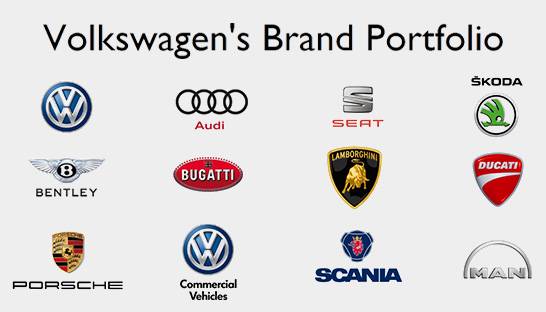

Beyond Passenger Cars – Commercial Vehicles and Motorcycles
The Volkswagen Group’s reach extends beyond passenger cars, encompassing vital sectors of commercial transportation and even motorcycles.
- Volkswagen Commercial Vehicles (VWN): This division produces light commercial vehicles, including popular vans like the Transporter and Crafter, and the Amarok pickup truck. These vehicles are workhorses, known for their reliability, versatility, and adaptability for various business and personal uses.
- Scania: A Swedish manufacturer specializing in heavy trucks, buses, and industrial and marine engines. Scania is renowned for its modular product system, fuel efficiency, robust engineering, and commitment to sustainable transport solutions.
- MAN: A German company that manufactures trucks, buses, diesel engines, and turbomachinery. MAN is a key player in the heavy-duty commercial vehicle market, known for its innovative technology, reliability, and comprehensive service network.
- Ducati: A legendary Italian manufacturer of high-performance motorcycles. Ducati is celebrated for its distinctive desmodromic valve engines, iconic designs, and rich racing heritage in MotoGP and World Superbike, appealing to enthusiasts who crave speed, style, and a thrilling two-wheeled experience.
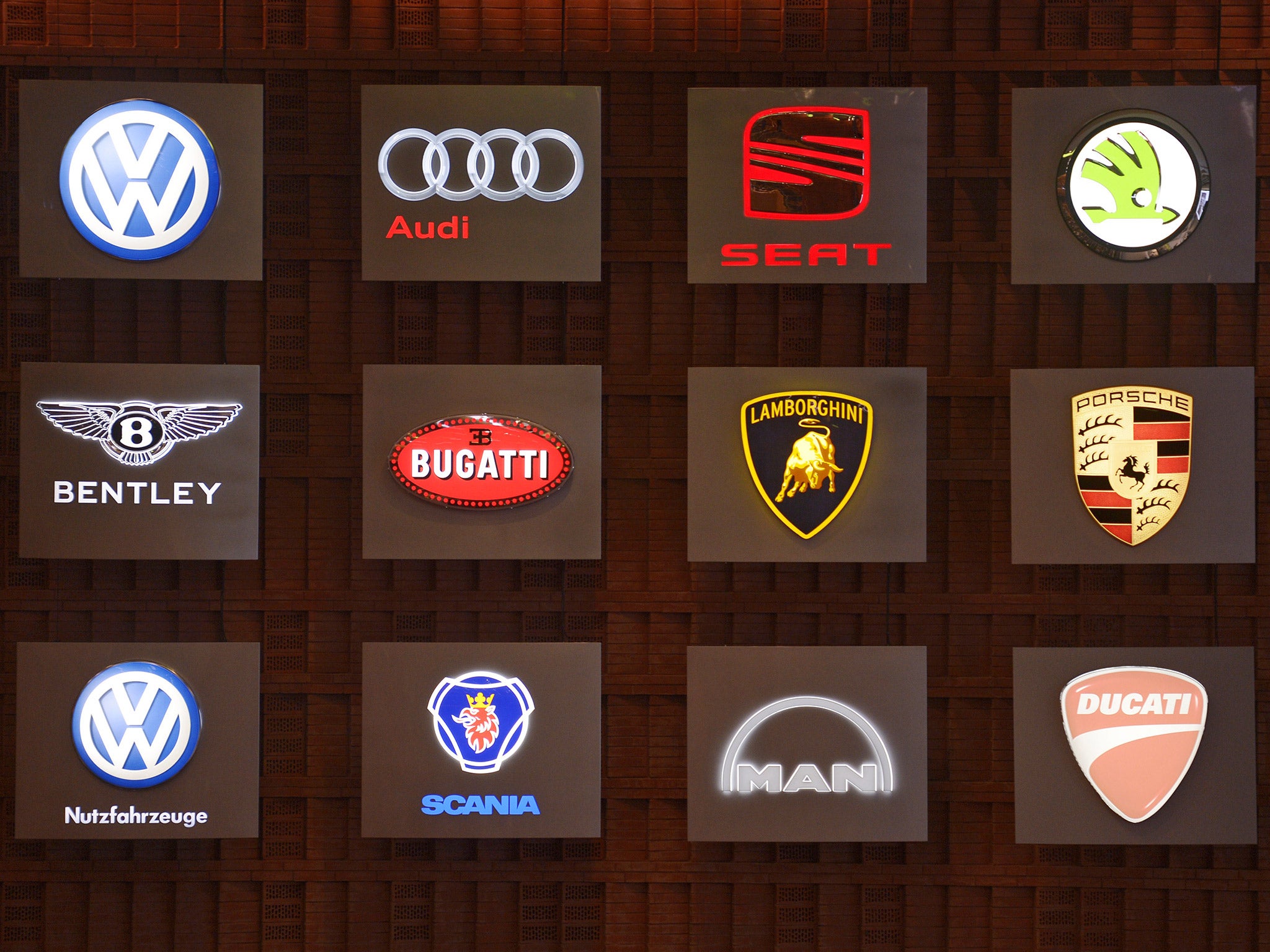
Strategic Advantages and Synergies within the Group
The multi-brand strategy of the VW Group isn’t just about owning many companies; it’s about intelligent integration and synergy.
- Platform Sharing: A cornerstone of VW Group’s efficiency is its modular platform strategy (e.g., MQB for compact cars, MLB for larger premium cars, MEB for mainstream EVs, PPE for premium EVs). This allows different brands and models to share underlying architectures, components, and even powertrains, significantly reducing development costs, production time, and complexity, while enabling rapid deployment of new technologies.
- Technology Transfer: Innovations developed by one brand can be adapted and shared across the group. For example, electric vehicle technology pioneered by Audi or Porsche can trickle down to VW and Škoda, accelerating the group’s transition to electrification. Similarly, advanced driver-assistance systems or infotainment solutions can be broadly implemented.
- Market Segmentation: Each brand targets a specific demographic and price point, minimizing internal competition and maximizing market coverage. This allows the group to capture customers at every stage of their automotive journey, from first-time buyers to ultra-luxury collectors.
- Global Presence: With manufacturing facilities and sales networks worldwide, the VW Group has an unparalleled global footprint, allowing it to adapt to regional market demands and withstand localized economic downturns.
- Sustainability and Electrification: The "Roadmap E" and "ACCELERATE" strategies demonstrate the group’s massive commitment to electric mobility, digital services, and sustainable production, leveraging the combined R&D power of its brands to lead the industry transformation.
Important Considerations for Consumers
For a prospective buyer, understanding the VW Group’s structure can be highly beneficial:
- Brand Identity vs. Shared Components: While many VW Group cars share platforms and components, each brand invests heavily in unique design, tuning, interior quality, and brand philosophy to ensure distinct driving experiences and market positions. A Škoda Octavia and a VW Golf may share a platform, but their interior ambiance, ride comfort, and target audience differ significantly.
- Resale Value: Generally, brands like Porsche and Audi tend to hold their value very well, reflecting their premium positioning and strong desirability. Volkswagen is solid, while Škoda and SEAT have seen improving resale values due to their enhanced quality and brand perception.
- Maintenance and Parts: Leveraging shared components often means easier access to parts and more consistent maintenance procedures across brands, though labor rates and specialized parts for ultra-luxury or performance brands will naturally be higher.
- Choosing the Right Brand: Consider your priorities: budget, practicality, luxury, performance, design, or sustainability. The VW Group likely has a brand that perfectly aligns with your needs and desires.
Potential Challenges and Solutions
Despite its strength, the VW Group faces significant challenges:
- Dieselgate Aftermath: The emissions scandal of 2015 severely impacted VW’s reputation and finances. The group has responded by investing heavily in compliance, ethical practices, and a massive pivot towards electrification to rebuild trust and redefine its image.
- Transition to Electric Vehicles: Shifting from internal combustion engines to EVs is a monumental task requiring vast investment in battery technology, charging infrastructure, and software development. VW is tackling this head-on with dedicated EV platforms (MEB, PPE) and ambitious production targets.
- Competition: New entrants (e.g., Tesla, Chinese EV makers like BYD and Nio) and established rivals are fiercely competing in the EV space. VW Group’s solution lies in its scale, diversified brand portfolio, and continued innovation in software and battery technology.
- Supply Chain Disruptions: Global events like chip shortages have impacted production. The group is working to localize supply chains and diversify suppliers to mitigate future risks.
- Maintaining Brand Distinctiveness: While platform sharing is efficient, the challenge is to ensure each brand retains its unique identity and appeal. VW Group addresses this through distinct design languages, brand-specific technologies, and targeted marketing campaigns.
Practical Advice and Actionable Insights
For those looking to purchase a vehicle from the VW Group, here’s some practical advice:
- Define Your Needs: Start by clearly outlining your budget, space requirements, performance desires, and technology preferences. This will help narrow down the vast selection.
- Research Specific Models: Once you’ve identified a few potential brands, dive into specific models. Read reviews, watch video comparisons, and understand the trim levels and optional features.
- Test Drive Multiple Brands/Models: Even if they share a platform, the driving dynamics and interior feel can differ significantly. Test drive a Volkswagen, an Audi, and a Škoda to truly appreciate the nuances.
- Consider Total Cost of Ownership: Look beyond the initial purchase price to factor in insurance, maintenance, fuel/charging costs, and estimated resale value.
- Embrace the Future: If you’re considering an EV, explore VW Group’s ID. series, Audi e-tron, Porsche Taycan, or Škoda Enyaq iV. The group is investing heavily in this area, ensuring cutting-edge technology.
VW Car Brands: General Market Positioning & Example Price Range
Please note: Prices are highly variable based on model, trim, region, year, and optional extras. The ranges below are approximate starting points for entry-level models and serve as a general guide to market positioning.
| Brand | Primary Market Segment | Typical Entry-Level Price Range (USD)* | Key Differentiating Factor |
|---|---|---|---|
| Volkswagen (VW) | Mainstream, Mass Market | $25,000 – $45,000+ | Quality, reliability, accessible technology, broad appeal |
| Audi | Premium, Luxury | $40,000 – $70,000+ | Sophistication, advanced technology, quattro AWD, refined luxury |
| Škoda | Value-for-Money, Practical | $22,000 – $35,000+ | Space, practicality, "Simply Clever" features, robust engineering |
| SEAT | Youthful, Sporty, Design-focused | $20,000 – $35,000+ | Emotional design, dynamic driving, Spanish flair |
| CUPRA | Performance-oriented, Sporty Premium | $35,000 – $55,000+ | Bold design, enhanced performance, distinct identity |
| Porsche | High-Performance, Luxury Sports | $65,000 – $150,000+ | Driving dynamics, heritage, exclusivity, iconic design |
| Bentley | Ultra-Luxury, Handcrafted | $200,000 – $300,000+ | Bespoke craftsmanship, opulent interiors, ultimate comfort |
| Lamborghini | Exotic Supercars, Hyper-Performance | $250,000 – $500,000+ | Radical design, extreme performance, visceral driving |
| Bugatti | Hypercars, Ultimate Exclusivity | $3,000,000 – $5,000,000+ | Unparalleled speed, engineering marvel, extreme rarity |
| VW Commercial Vehicles | Light Commercial, Work Vans | $30,000 – $60,000+ | Versatility, durability, business utility |
| Scania | Heavy Trucks, Buses | (Fleet pricing, highly variable) | Efficiency, modularity, heavy-duty reliability |
| MAN | Heavy Trucks, Buses | (Fleet pricing, highly variable) | Robustness, power, advanced commercial solutions |
| Ducati | High-Performance Motorcycles | $12,000 – $30,000+ | Racing heritage, distinctive engine, Italian design |
*Prices are illustrative estimates for entry-level models and can vary significantly by market, trim, and options. They are not current retail prices.
Frequently Asked Questions (FAQ)
Q1: How many brands does the Volkswagen Group own?
A1: The Volkswagen Group owns 10 main brands: Volkswagen, Audi, Škoda, SEAT, CUPRA, Porsche, Bentley, Lamborghini, Bugatti, and Ducati (motorcycles). Additionally, it includes commercial vehicle brands like Volkswagen Commercial Vehicles, Scania, and MAN.
Q2: What is the difference between a Volkswagen and an Audi?
A2: While both are part of the VW Group and may share platforms, Audi is positioned as a premium/luxury brand, emphasizing sophisticated design, advanced technology, higher-quality materials, and a more refined driving experience. Volkswagen is a mainstream brand focused on broader appeal, practicality, and value for money, offering robust and reliable vehicles.
Q3: Are Škoda cars reliable?
A3: Yes, Škoda cars are widely regarded as very reliable. Benefiting from Volkswagen Group engineering and platforms, they consistently perform well in reliability surveys and offer excellent build quality and durability, often exceeding expectations for their price point.
Q4: Does Porsche use Volkswagen parts?
A4: Yes, Porsche, as part of the Volkswagen Group, does share some components, platforms, and technologies with other brands in the group, especially with Audi and Volkswagen. This synergy allows for cost efficiencies and faster development, but Porsche meticulously engineers and tunes these components to maintain its distinct performance and luxury identity.
Q5: What is the most expensive brand under the VW Group?
A5: Bugatti typically represents the most expensive and exclusive brand under the VW Group, with its hypercars often costing several million dollars. Lamborghini and Bentley also occupy the ultra-luxury segment with very high price tags.
Q6: What is VW Group’s strategy for electric vehicles?
A6: VW Group has an aggressive electrification strategy, aiming to become the global leader in electric mobility. Key elements include dedicated EV platforms (MEB for mainstream, PPE for premium), massive investments in battery production and charging infrastructure, a commitment to carbon neutrality, and launching numerous electric models across its brands (e.g., VW ID. series, Audi e-tron, Porsche Taycan, Škoda Enyaq iV).
Concluding Summary
The Volkswagen Group stands as a monumental force in the global automotive industry, a testament to strategic vision, engineering prowess, and shrewd brand management. What began as a single vision for a "people’s car" has blossomed into an automotive empire that encompasses a breathtaking array of brands, each with its unique identity and market segment. From the practical reliability of a Volkswagen to the technological luxury of an Audi, the spirited drive of a Porsche, or the exotic allure of a Lamborghini, the VW Group offers an unparalleled spectrum of vehicles. By expertly balancing shared platforms and technologies with distinct brand philosophies, Volkswagen AG continues to drive innovation, adapt to evolving market demands, and reinforce its position as a truly global automotive leader, poised to navigate the future of mobility with confidence and diversity.


